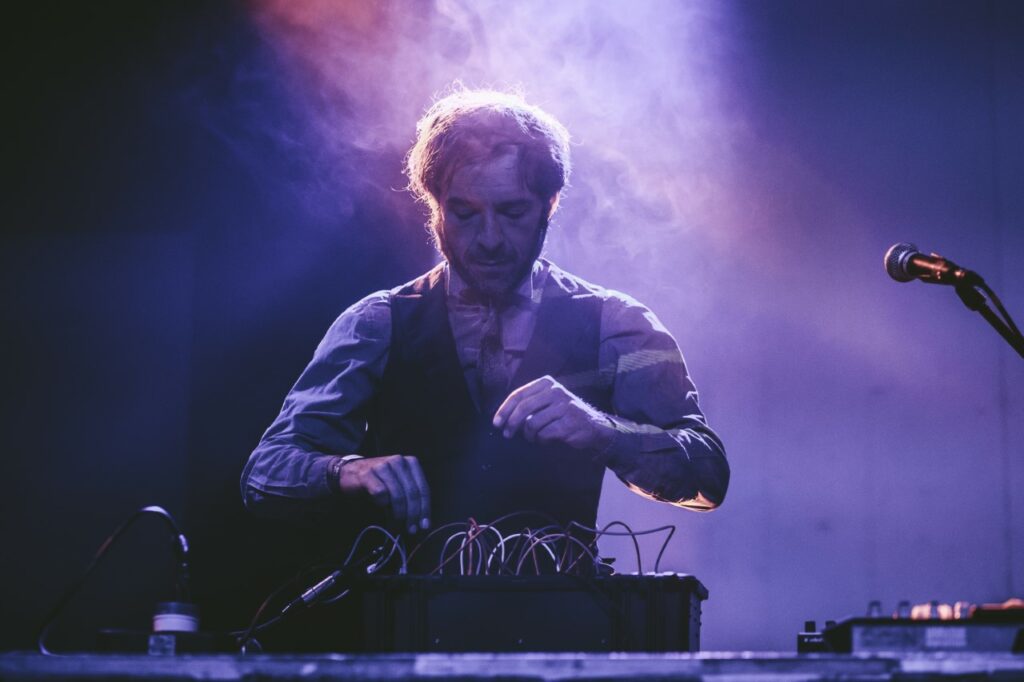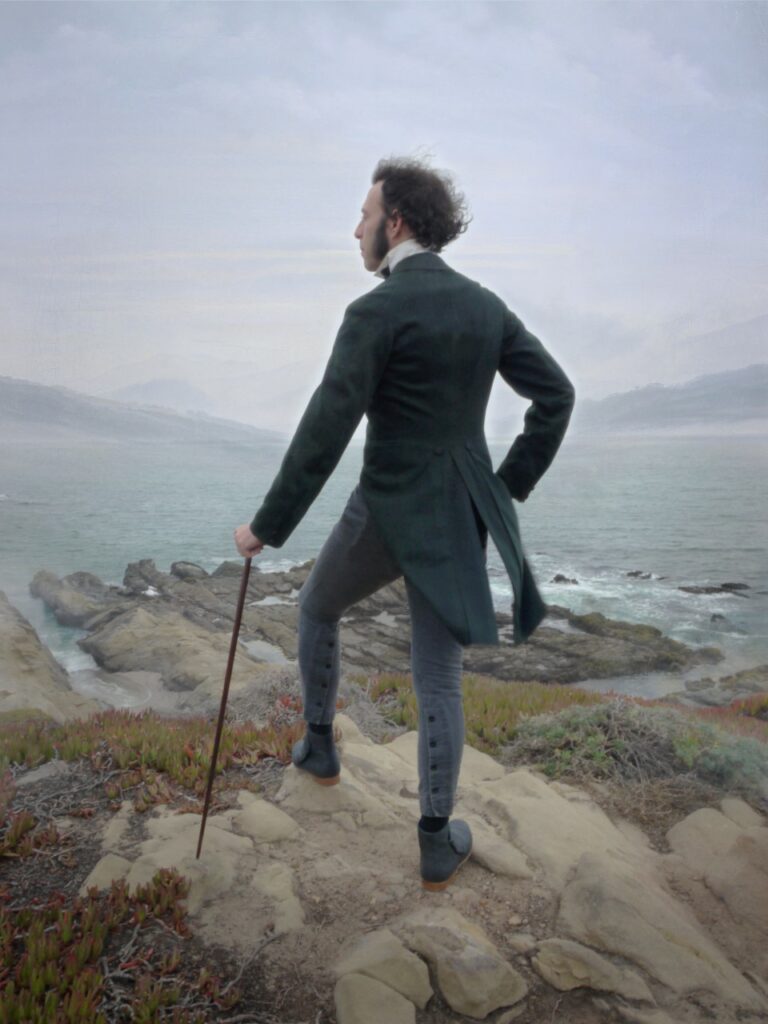Daedelus & Joshua Idehen interview: “I still haven’t watched the Floyd snuff video”
Spoken word/ambient collaboration inspired by BLM and the death of George Floyd

Two artists united by a parallel sense of concern, LA beat mainstay Daedelus and poet-visionary Joshua Idehen have come together for their first collaborative album, Holy Water Over Sons.
A mournful spoken word/ambient project dealing in cousined moods of hope and despair, this masterwork was made in the wake of George Floyd’s death, and the resultant surge in international support for the Black Lives Matter movement.
Filled with impressionistic vocal processing, righteously angry out-loud rhymes, and scant rhythmic parts, the album charts ts Daedelus’ and Idehen’s first reactions and musings on the events of 2020-21 and beyond. From dramatic retellings of the Washington DC protest, through to imaginings of a world in which victims of police brutality lived on, it’s not one to be missed.
We were lucky enough to catch up with the pair last week, discussing all from the origins of their collaboration, to the infuriating relation of water to their music. Read on…
How did you both first meet, and how did your collaboration come about?
Joshua: I’ve been a fan of Daedelus’ music and incarnations for just over a decade. I saw them once at a Long Lost show, but only really started chatting over twitter. I would regularly send them music I made, for feedback. Come 2019, I sent over the demos for my project Calabashed (Alabaster), Alfred suggested we do something together and I stupidly imagined travelling to Boston in 2020. Covid is an asshole.
Daedelus: It really is incredible that we’d have crossed paths before our current. I adore the receipts here, because twitter does not forget. On July 28th, 2013 there’s a brief message from Joshua sending along a demo song and some kind words about some previous albums. The strength of that long ago demo material and courage to overcome time and space during this pandemic. All these years later to manifest working together!

Did you enjoy collaborating remotely, between Stockholm and Boston, and how does it stack up compared to working in-person? Did working remotely help cement the album’s themes in any way?
Joshua: Haven’t had the chance to work in person with Alfred, hopefully someday. It was a project of volleys: Alfred would send a beat and I would think up verses. I took what they sent as “locked in” so my bars were written as though the arrangement was final. I guess in person there might have been opportunities for discussion and teasing out new ideas and insights, but it makes sense to make an album about a time of isolation, in isolation.
Daedelus: We do have quite a bit of material that didn’t make the final cut, exactly as Joshua says, perhaps in person there would have been different moves made. However I cannot fathom what this record would have been unless it was as reactive to this ongoing now. Maybe when we play this material live that overwhelming isolation can give way to jubilant rage.
You began work on Holy Water Over Sons well before George Floyd’s death. When the news broke, you said it forced the album to undergo a “radical course correction”. How did the project change after then?
Joshua: I have the recurring ambition to write a set of songs based on Aesops’ Fables. I was a ways in when the summer hit, and then all my lyrics felt a bit irrelevant. I still haven’t watched the Floyd snuff video. I felt extremely angry, despairing and helpless. So I scrapped the verses and rewrote, starting with Floyd.
You’re both likely aware that George Floyd had a brief involvement in the Houston hip hop scene under the name Big Floyd. He was part of Screwed Up Click, led by DJ Screw. Did this musical affiliation impact the chopped n’ screwed influences on tracks like ‘Haunted’?
Daedelus: In part. Same as many producers I’ve made the pilgrimage to Screwed Up Records and Tapes in Houston. Strange to see elements of what Dj Screw innovated cherrypicked for Slowed and Reverb (clearly derivative of Chopped and Screwed despite those who say otherwise). Anytime the bpm goes down we should put credit where it’s due.

Water is a recurring theme throughout the album. As on ‘If We Must Take It, Fair Enough’, the final demand for clean water seems both immediate and symbolic. What does water, and perhaps more specifically holy water, represent?
Joshua: I’m a lapsed catholic: religious imagery finds its way into my work one way or the other. Holy Water has always represented protection in any of the prayers we had back home. Holy Water and the “blood of Jesus”. Pouring holy water over anything meant it was anointed and thus shielded against demons and bad minds.
The clean water line was in reference to Flint, Michigan: it’s infuriating to imagine there are young black children whose lives are irreparably damaged from leaded water, all because of racist capitalism. Such a basic need, “Clean Water” and it’s not like it’s rare or unavailable.
Percussion is sparse, and ambiences and electric piano are relatively prominent, creating (despite anger) a sense of downtrodden melancholy. Was this the intention? Is this album a rallying cry, or more of an elegy, or both?
Daedelus: You have it in the word elegy. Often here the music is made to play subtle foil contrasting Joshua’s words with a kind of long exhalation. In truth the intention was otherwise; that the minimalism would be added to and adorned until it resembled more conventional productions. That was before our listing towards “Holy Water…” Give us time (and reason) and maybe we’ll have more rallying cry.
Joshua’s voice is often effected by vocoder and reverb, almost drowning it out at points, like on ‘Pedal Down, No Breaks’. We noticed at one point in which the vocoder is most prominent on the penultimate track, Joshua mentions “not breathing”. What was the intended effect of this?
Daedelus: It is indeed so distended to make the listener wonder if they are listening to life or afterlife.
- Holy Water Over Sons is out now via Albert’s Favourites